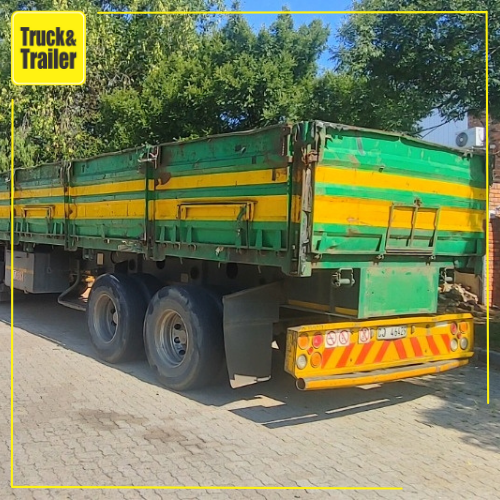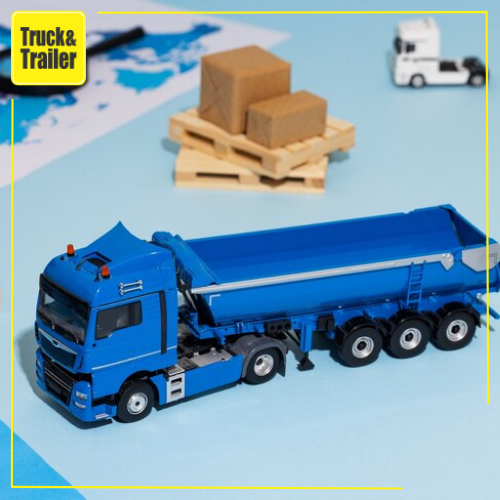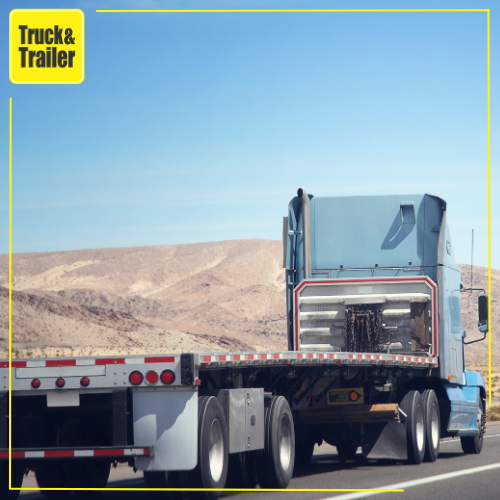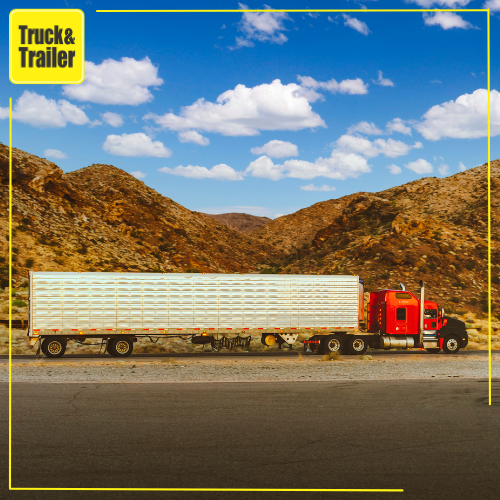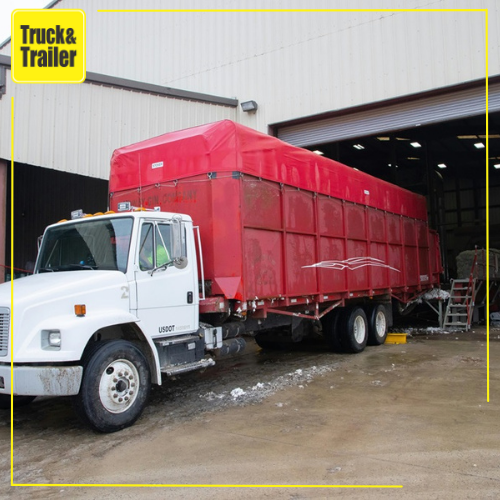
Navigating the World of Truck and Trailer Upgrades in South Africa
Date: 15/11/2023
In South Africa, the trucking industry plays a crucial role in ensuring the smooth transportation of goods across the country. With the constant demand for efficient and reliable logistics, truck and trailer upgrades have become essential for both fleet owners and independent truckers. This article will guide you through the world of truck and trailer upgrades, providing insights into the latest trends and highlighting key considerations when undertaking these enhancements. Don't miss out on getting your hands on your favourite items when they're listed on Truck & Trailer by setting up an alert.

The Importance of Truck and Trailer Upgrades
Truck and trailer upgrades in South Africa are vital for enhancing the performance, safety, and efficiency of vehicles in the trucking industry. These upgrades can range from simple additions such as new tyres or lighting systems to more complex modifications like engine upgrades or aerodynamic improvements. By investing in upgrades, truckers can experience increased fuel efficiency, reduced maintenance costs, and improved overall productivity.
Key Considerations for Truck and Trailer Upgrades in South Africa
1. Assessing Your Needs: Before embarking on any upgrades, it is crucial to evaluate the specific requirements of your truck or trailer. Consider factors such as the amount of weight a vehicle can carry, terrain conditions, and the type of goods being transported. This evaluation will help you prioritise which upgrades are most beneficial for your specific operations.
2. Compliance with Regulations: When planning upgrades, it is essential to ensure compliance with South African road safety regulations. Familiarise yourself with local laws and guidelines regarding vehicle modifications to avoid any legal complications.
3. Quality Products and Suppliers: Selecting high-quality upgrade products and reliable suppliers is crucial for long-term success. It is advisable to research reputable manufacturers and seek recommendations from fellow truckers or industry experts. Investing in durable and reliable upgrades will not only enhance performance but also minimise the risk of breakdowns and costly repairs.
4. Cost Analysis: Upgrades vary in cost, and it is essential to conduct a thorough cost-benefit analysis before proceeding. Consider factors such as initial investment, potential fuel savings, and extended vehicle lifespan. Striking a balance between affordability and long-term benefits is key to making a wise investment decision.
5. Professional Installation: Proper installation of upgrades is critical to ensure their effectiveness and longevity. Engaging certified technicians or professional mechanics who specialise in truck and trailer modifications can guarantee a seamless installation process and reduce the risk of any complications down the line.
Latest Trends
1. Aerodynamic Enhancements: Implementing aerodynamic upgrades, such as roof fairings or side skirts, can significantly reduce drag and improve fuel efficiency.
2. Telematics and Fleet Management Systems: Integrating advanced telematics and fleet management systems provide real-time monitoring of vehicle performance, enabling fleet owners to streamline maintenance schedules and optimise routing.
3. Safety Upgrades: Enhancements like blind-spot detection systems, collision avoidance technologies, and advanced braking systems can greatly reduce the risk of accidents and improve overall road safety.
4. Eco-Friendly Upgrades: With an increasing emphasis on sustainability, truckers are opting for eco-friendly upgrades such as emissions-reducing exhaust systems or hybrid powertrains, contributing to a greener transportation industry.
5. Customisation for Specialised Transport: Some industries require specialised features, such as refrigeration units for transporting perishable goods or specialised trailers for heavy machinery. Customisation options allow truckers to tailor their vehicles to meet the specific needs of their niche market.

What are the benefits of upgrading a truck or trailer in South Africa?
Upgrading a truck or trailer can bring numerous advantages to businesses and individuals involved in transportation and logistics. A truck or trailer improvement not only enhances the efficiency and safety of transportation operations but also contributes to increased profitability and customer satisfaction.
- Enhanced Safety and Compliance
The upgrading ensures that your vehicle is up to date with the latest safety standards and regulations. This can significantly reduce the risk of accidents and ensure compliance with legal requirements imposed on commercial transport. Modern trucks and trailers come equipped with advanced safety features such as collision avoidance systems, electronic stability control, and improved braking technology, making the roads safer for both the driver and other road users.
- Increased Efficiency and Fuel Economy
A key benefit of improving a truck or trailer is the potential for increased efficiency and fuel economy. Newer models often feature innovative technologies that optimise engine performance, reduce drag, and enhance aerodynamics. These improvements result in reduced fuel consumption, which directly translates to cost savings for businesses. Additionally, upgraded trucks and trailers may have larger cargo capacity, allowing for more goods to be transported at once, thus increasing the efficiency of logistics operations.
- Improved Reliability and Durability
An upgrade to a newer truck or trailer can improve overall reliability and durability. Older vehicles may experience frequent breakdowns and require more maintenance, leading to downtime and increased repair costs. A reliable and durable truck or trailer ensures minimal disruptions to transport operations, reducing the risk of delays and improving customer satisfaction. Upgraded vehicles often come with warranties or support packages, providing businesses with peace of mind and ensuring efficient operation for an extended period.
- Enhanced Comfort and Driver Satisfaction
Investing in a truck or trailer upgrade also benefits the driver's comfort and satisfaction. Modern vehicles offer improved ergonomics, comfortable seating, and advanced technological features that make long-haul journeys less physically demanding. This can contribute to increased driver efficiency and reduced fatigue, ultimately enhancing driver satisfaction and retention. Happy drivers lead to enhanced productivity, lower turnover rates, and a positive working environment.
- Competitive Advantage and Brand Image
By upgrading their trucks or trailers, businesses in South Africa gain a competitive advantage in the transportation industry. Having a fleet of upgraded vehicles can be a strong selling point, showcasing a company's commitment to safety, efficiency, and reliability. Customers often prioritise working with transportation providers that prioritise the latest technology and improved vehicles, ensuring timely and secure deliveries. An upgraded fleet can also enhance brand image, instilling trust and loyalty among customers.
 Photo by ELEVATE on Pexels
Photo by ELEVATE on Pexels
What safety features should be considered during truck upgrades?
Key Safety Features to Consider:
1. Advanced Braking Systems: Incorporating modern braking systems, such as Anti-lock Brake Systems (ABS) and Electronic Stability Control (ESC), enhances the vehicle's ability to stop safely and maintain stability during sudden stops or maneuvers. These features prevent wheel lockup, reduce skidding, and improve overall braking performance, especially on slippery roads or in emergency situations.
2. Collision Mitigation Systems: Equipping your truck or trailer with collision mitigation systems can dramatically reduce the likelihood and severity of accidents. These systems, including Forward Collision Warning (FCW) and Autonomous Emergency Braking (AEB), use advanced sensors and algorithms to detect potential collisions and automatically apply the brakes or provide warnings to the driver, enabling timely intervention and avoiding accidents.
3. Blind Spot Detection: Blind spot detection systems use radar or cameras to monitor the vehicle's blind spots, alerting the driver to the presence of other vehicles or obstacles that may not be visible in the mirrors. By reducing blind spot-related incidents, these systems enhance safety during lane-changing maneuvers.
4. Lane Departure Warning: Fatigue or distractions can sometimes cause drivers to unintentionally drift out of their lane. Lane Departure Warning systems use cameras or sensors to monitor the truck's position on the road and provide visual or auditory alerts if the vehicle veers off its designated lane. By preventing unintended lane departures, these systems help prevent accidents and keep the truck within a safe trajectory.
5. Adaptive Cruise Control: This feature combines traditional cruise control with radar or sensors to maintain a safe distance from vehicles ahead. Adaptive Cruise Control adjusts the truck's speed in response to the surrounding traffic, reducing the risk of rear-end collisions. It allows for a more relaxed driving experience while ensuring safe distances are maintained.
In closing, navigating the world of truck and trailer upgrades in South Africa requires careful consideration and planning. By understanding the importance of upgrades, prioritising needs, complying with regulations, selecting quality products, conducting cost analyses, and ensuring professional installations, truckers can make informed decisions that maximise efficiency and safety. Embracing the latest trends in truck and trailer enhancements further enhances the potential for success in South Africa's dynamic trucking industry. Set up an alert so you don't miss out on purchasing your favorite items when they're advertised on Truck & Trailer.


